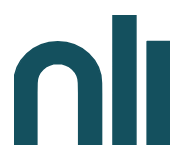About
This page provides information on the contents of the Sources database and its origins.
For up-to-date information on National Library of Ireland collections please consult the NLI's Catalogue
Contents
The records in Sources: A National Library of Ireland database for Irish research are derived from the following catalogues published by the National Library of Ireland:
- Manuscript Sources for the History of Irish Civilisation (published 1965, with a supplement in 1975, and continued by a card catalogue previously only available in the NLI's manuscripts reading room)
- Sources for the History of Irish Civilisation: Articles in Irish Periodicals (published 1970)
The database contains over 180,000 catalogue records, including:
- The National Library of Ireland's manuscripts catalogued up to the 1980s
- Irish manuscripts held in other libraries and archives in Ireland and worldwide, listed between the 1940s and the 1970s
- Articles, reviews and other content that appeared in over 150 Irish periodicals (download a full list of the journals) up to 1969
Record contents generally represent the decisions taken during the original cataloguing and indexing project, and reflect the holdings of libraries and archives as they were when that work was carried out.
Read more about the history of Sources below.
Background
In 1941, National Library of Ireland Director Richard J. Hayes launched a vast cataloguing and indexing project which would run for over 30 years.
Hayes recognised that the National Library should collect "all sources of information on everything relating to Ireland or to Irishmen for all periods". In support of that vision, he established a project to list irreplaceable Irish manuscripts, wherever they were found, and to index the content of the most important Irish journals. Researchers were dispatched to over a thousand libraries and archives in 30 countries to find, record, and in many cases microfilm manuscript material. They uncovered close to 100,000 manuscripts, from the smallest of remote monasteries to the vast collections of the National Library itself.
Library staff also indexed every article, poem and review in key Irish periodicals published over the course of nearly 200 years, with the earliest dating from 1785. The journals indexed included those published by all the major learned and local societies and associations, trade and business interests, religious bodies, technical institutions and universities, as well as small literary magazines associated with writers such as WB Yeats.
The records they created were published as Manuscript Sources for the History of Irish Civilisation (1965, with a supplement in 1975, and continued by a card catalogue previously only available in the NLI's manuscripts reading room) and Sources for the History of Irish Civilisation: Articles in Irish Periodicals (1970). These amounted to 23 substantial volumes, containing over 17,000 pages of records. For decades, this huge resource was of enormous value to anyone interested in Ireland and its people, but was only accessible by visiting the limited number of libraries and universities who held full sets of these printed catalogues.
In 2007, the National Library of Ireland began a project to convert this valuable records into a fully searchable online database, Sources: a National Library of Ireland database for Irish Research


